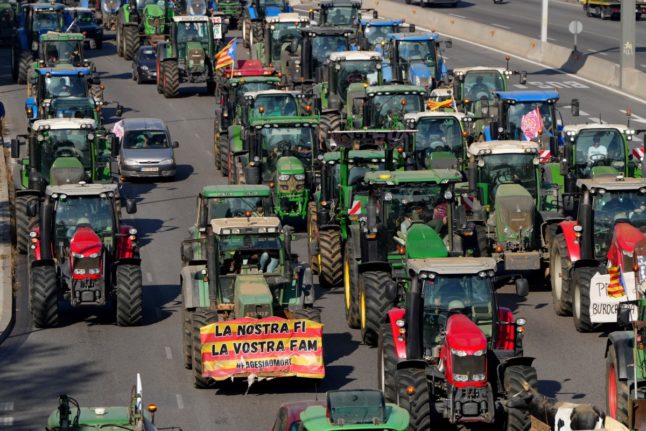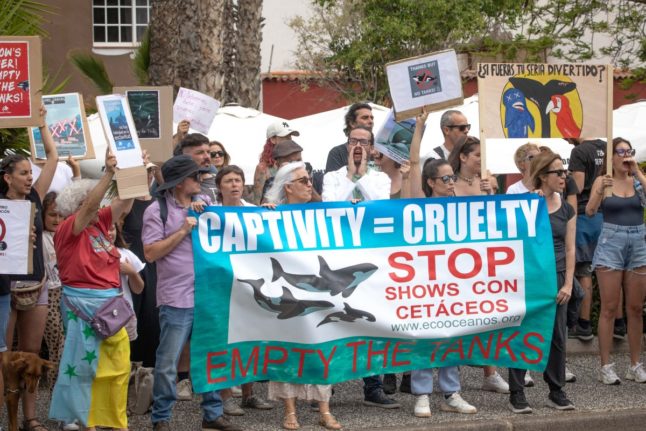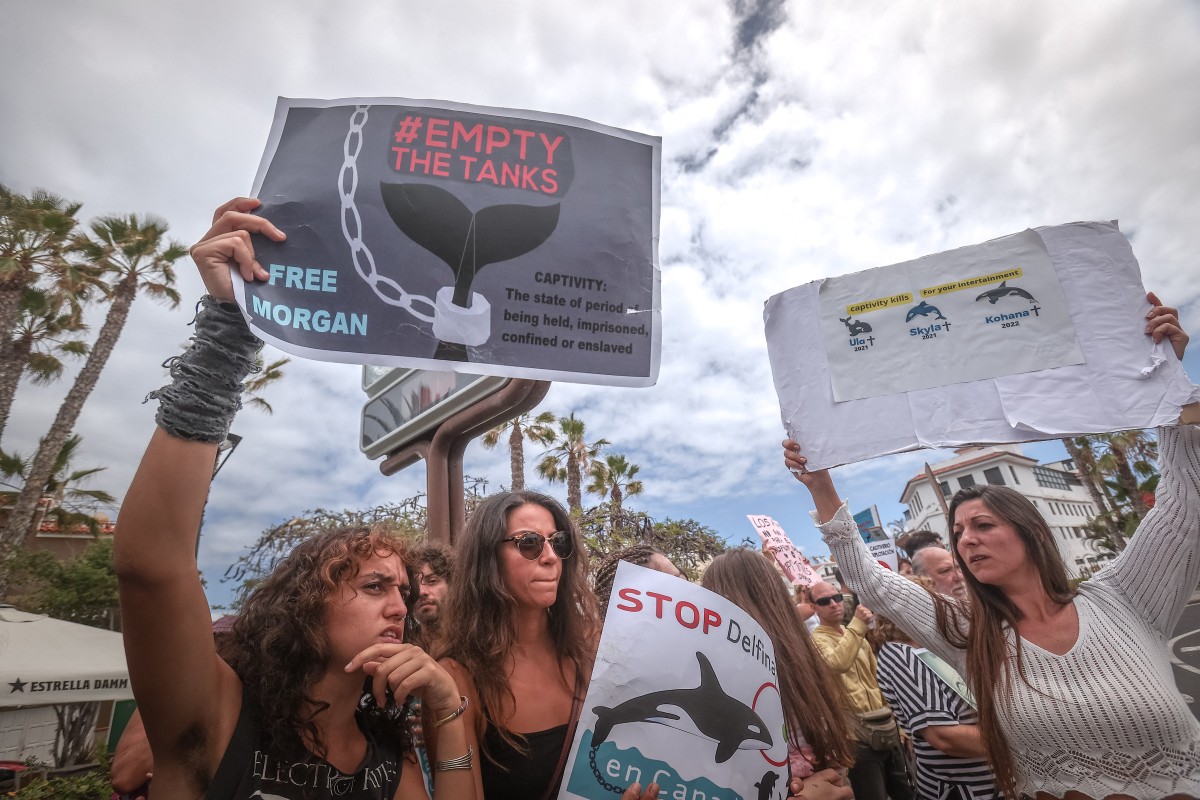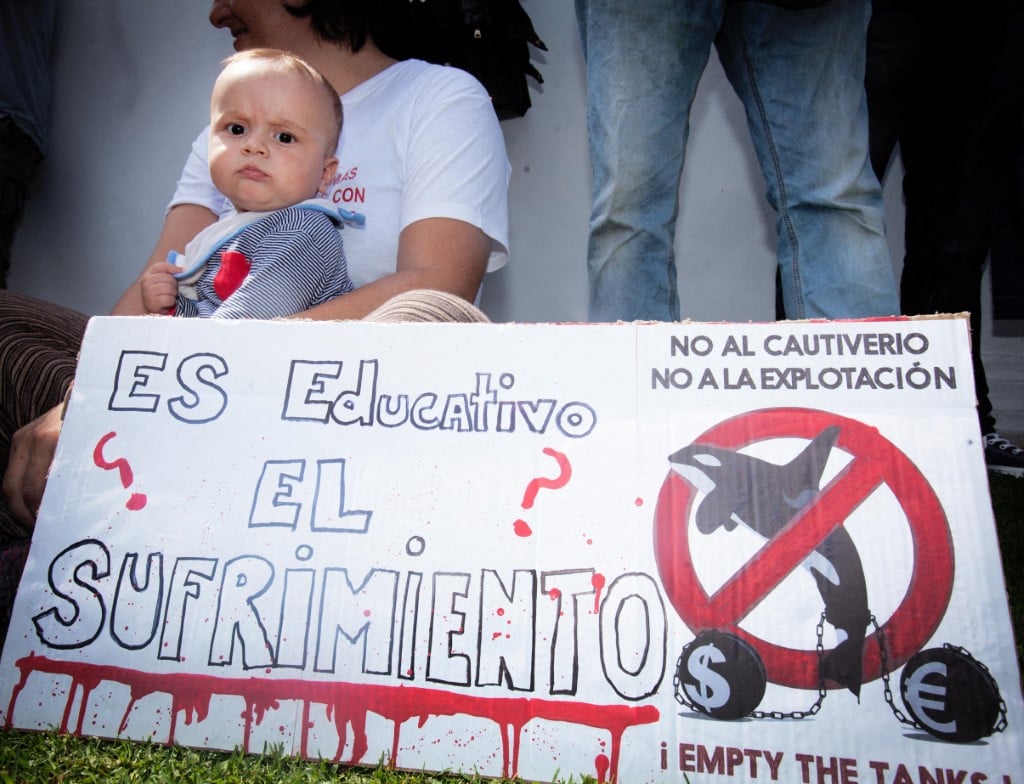As Spain’s farmers’ protests crank into gear, it’s now beginning to affect major cities.
On Wednesday, thousands of farmers took their tractors to the streets to block roads across Spain. So far the demonstrations have blockaded ports and markets, shut down motorways, and farmers in Barcelona even attempted to bring the city to a standstill by driving into the city centre and blocking the main motorway access points.
Unions and agricultural groups have set out a full month of protests and demonstrations, so the disruption seems set to continue throughout Feburary.
READ ALSO: How long will the farmers’ roadblocks in Spain last?
But what are these farmers actually protesting against? What do they want?
Farmers’ demands
As Europe’s main fruit and veg exporter, Spain is widely known as the continent’s ‘vegetable garden’ but the farmers that grow these tomatoes, olives and mandarins are facing some serious difficulties and are worried for the survival of their businesses and sector.
Like farmers in France and across Europe as the tractor protests spread, Spanish farmers have several different demands and grievances.
They want better prices for their products, of course, especially on the back of inflation and increased production costs. They also take issue with the green agenda and unfair competition (an EU-wide problem and something French farmers accuse Spanish farmers of) they say comes from outside Europe to undercut their prices.
Spanish farmers feel the EU too easily allows non-EU products without volume limitations, into the block, with reduced access prices and without the same conditions being demanded of European farmers. They are asking for European common agricultural policy rules to be softened and food chain law to be better respected, and also want extra tax benefits on agricultural diesel.
They also complain about the level of bureaucracy and environmental requirements in the EU’s Common Agricultural Policy (CAP) and the soon to come “Green Deal”.
READ ALSO: EU chief bows to protesting farmers over pesticide use
Many in the agricultural sector are also challenging demands for fertiliser reduction, something they claim limits their international competitiveness and reduces crop yields. They also demand greater flexibility in other environmental measures such as crop rotation.
Some of these demands would have to be rectified at the EU level, some at the national level and others at the regional level. Of course, Spanish farmers have the extra pressure of historic drought conditions badly affecting their crops yields and profits.
As such, Spanish farmers, especially those who have seen their crops wiped out by freak weather events, are also calling for a reform of agricultural insurance to provide better cover for the new conditions created by climate change.
READ ALSO: What and where are the drought water restrictions in Catalonia?







 Please whitelist us to continue reading.
Please whitelist us to continue reading.
Member comments